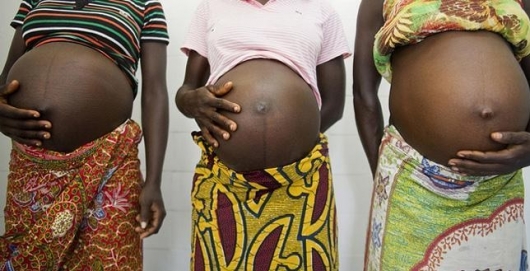The Bono Region recorded 14,877 teenage pregnancies between 2021 and 2024, according to Rita Adjoa Ansong, Deputy Director of Nursing Services (Public Health) at the Bono Regional Directorate of Health.
She noted that the region also recorded 1,188 cases of abortion within the same period, involving girls aged between 15 and 19.
Miss Ansong made this known at a stakeholders’ meeting in Sunyani, held as part of activities marking the African Vaccination Week (AVW) and Child Health Promotion Week (CHPW), organised by the Bono Regional Directorate of Health.
Providing a breakdown of the figures, she said 3,999 pregnancies and 388 cases of abortion were recorded in 2021; 4,058 pregnancies and 351 abortions in 2022; 3,492 pregnancies and 217 abortions in 2023; and 3,328 pregnancies and 282 abortions in 2024.
Describing the situation as worrying, Miss Ansong called on stakeholders to support efforts aimed at improving Family Planning (FP) coverage among sexually active teenage girls in the region, in order to reduce teenage pregnancies.
She stressed that FP enables girls to make informed decisions about their sexual and reproductive health, allowing them to continue their education.
Miss Ansong also identified myths and misconceptions, lack of community support, and outdated cultural and religious beliefs as key barriers preventing girls and women from accessing various FP methods.
She indicated that regional FP service coverage in 2024 stood at 39.58 percent of the expected target group—women and girls of reproductive age—up from 36.45 percent in 2023.
The acceptor rate for 2024 reflected an increase of 0.08 percent over the previous year. She attributed this marginal improvement to partner collaboration, consistent supply of FP commodities, and the re-registration of users of long-acting reversible contraceptive (LARC) methods.
Miss Ansong added that the provision of free commodities by organizations such as Marie Stopes, DKT, and the Planned Parenthood Association of Ghana (PPAG) also contributed significantly to the increase in acceptor rates.
She underscored that FP empowers women and girls to make informed choices about their futures, leading to healthier pregnancies and reduced maternal deaths. She therefore urged stakeholders and the media to help intensify awareness creation and address existing barriers.
Earlier, Dr. Prince Quarshie, Deputy Director of Public Health at the Bono Regional Directorate of Health, explained that the objective of the meeting was to raise awareness among stakeholders and the public about the importance of immunization and the comprehensive child health services available in the country.
He added that the forum also served as a platform to strengthen collaboration among key stakeholders, including government agencies, development partners, community leaders, health professionals, and the media.
The African Vaccination Week (AVW), established in 2010 by the World Health Organization (WHO), is celebrated annually during the last week of April (24th to 30th) to promote immunization as a lifesaving intervention.
Dr. Quarshie noted that the Child Health Promotion Week (CHPW), introduced by the Ministry of Health in 2004, is observed from May 5 to May 9 each year and focuses on nutrition, immunization, and preventive care for children under five.

